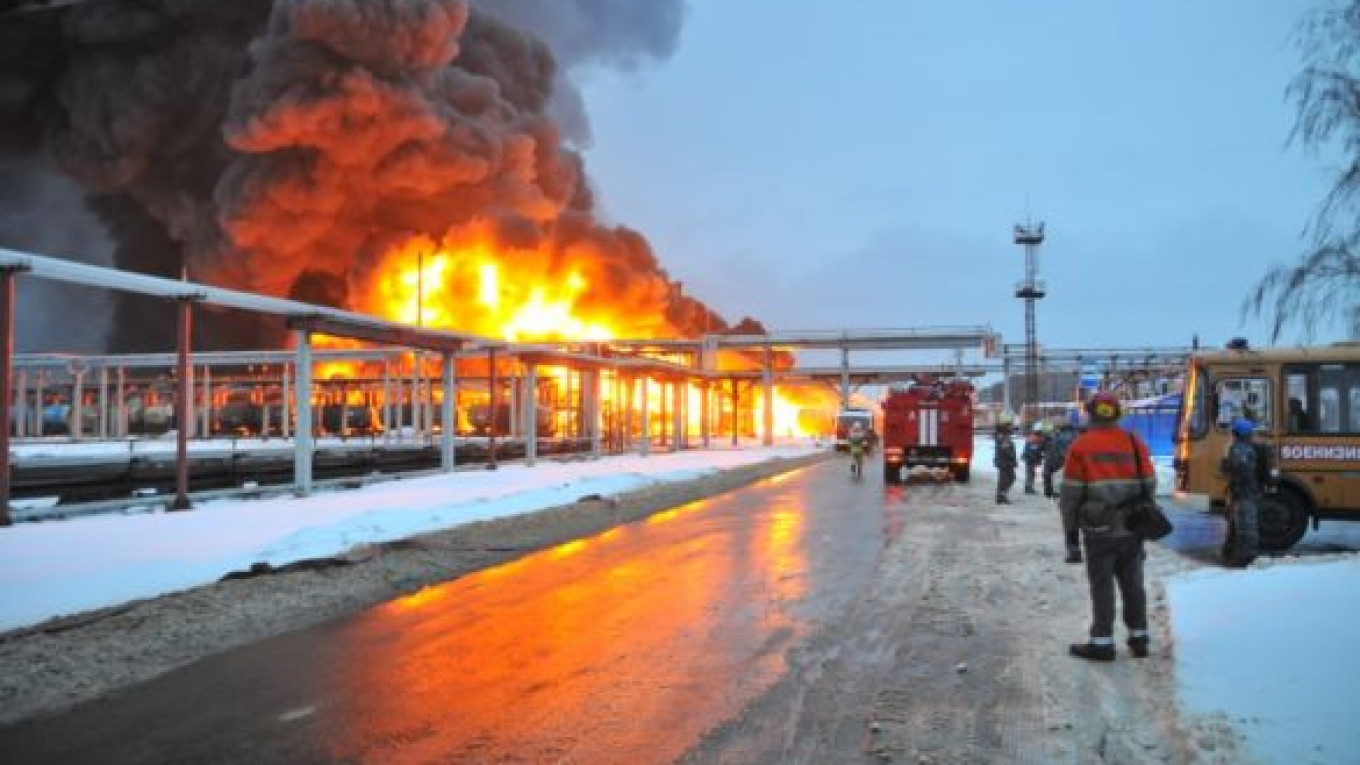Rosneft said Thursday it had halted output of oil products at its Ryazan refinery, a key fuel supplier to Moscow's airports, after a fire late on Wednesday caused by a railcar crash.
Oil pipeline monopoly Transneft said the 340,000-barrels-per-day plant, located 200 kilometers southeast of Moscow, had suspended oil product supplies and crude oil intake, but had reserves to cover demand from the airports for a week.
Rosneft said several rail cars decoupled from a locomotive and then rolled backwards to crash through the gates at the plant, sparking a fire. It said no one was hurt in the incident at the refinery, one of the country's largest.
"Due to safety reasons, the [plant's] units are switched to circulation mode, which is planned for an emergency," Rosneft said in a statement.
Rosneft said the fire had been extinguished by 5 a.m. local time on Thursday. A spokesman for the company said the refinery would resume normal work by Feb. 19.
Last year, the plant refined 17.3 million tons of oil, producing 4.1 million tons of diesel, 3.3 million tons of gasoline and 1.1 million tons of jet fuel.
Rosneft had planned to carry out maintenance at the plant, bought together with the -Russian TNK-BP oil firm last year, in April.
A spokesman for Transneft said the company planned to divert crude oil, originally destined for the Ryazan plant, to the Baltic Sea ports of Primorsk and Ust-Luga.
"If the plant resumes its work in a week, consumers will not feel any consequences from the Ryazan refinery stoppage," spokesman Igor Dyomin said.
He added that a key storage hub, Volodarsky, in the Moscow region, had 30,000 tons (over 220,000 barrels) of fuel reserves, while daily consumption stood at 4,000 tons.
A Message from The Moscow Times:
Dear readers,
We are facing unprecedented challenges. Russia's Prosecutor General's Office has designated The Moscow Times as an "undesirable" organization, criminalizing our work and putting our staff at risk of prosecution. This follows our earlier unjust labeling as a "foreign agent."
These actions are direct attempts to silence independent journalism in Russia. The authorities claim our work "discredits the decisions of the Russian leadership." We see things differently: we strive to provide accurate, unbiased reporting on Russia.
We, the journalists of The Moscow Times, refuse to be silenced. But to continue our work, we need your help.
Your support, no matter how small, makes a world of difference. If you can, please support us monthly starting from just $2. It's quick to set up, and every contribution makes a significant impact.
By supporting The Moscow Times, you're defending open, independent journalism in the face of repression. Thank you for standing with us.
Remind me later.






